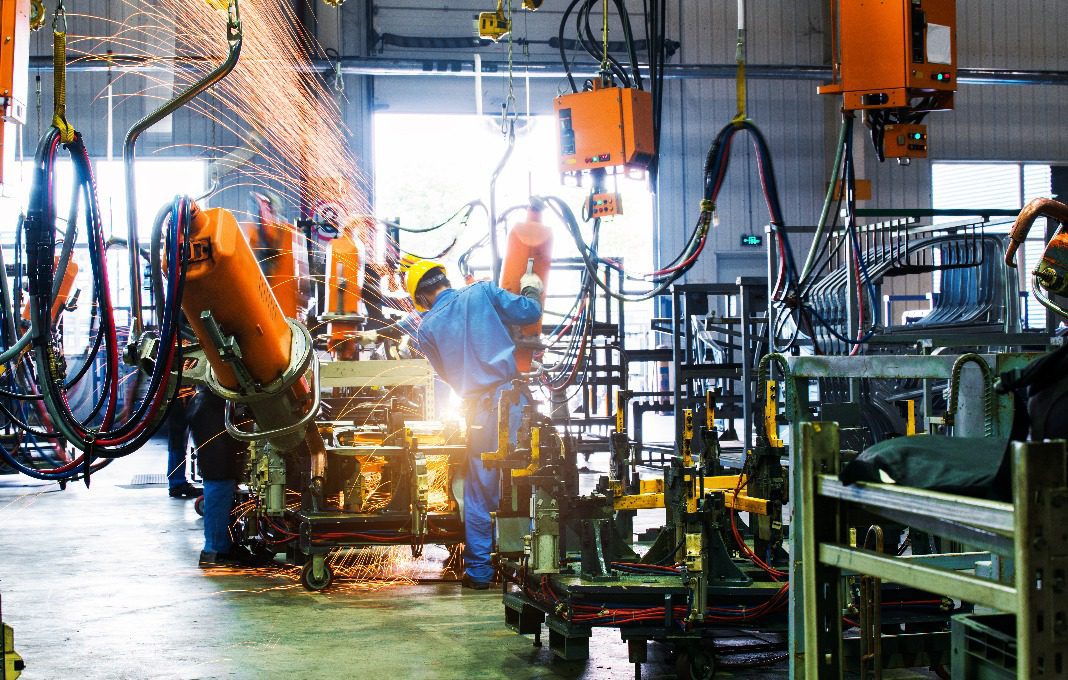Manufacturers Brighten At Prospects For Anti-China Actions


Small and mid-size U.S. manufacturers and their representatives are increasingly confident the Biden administration will support American factories and enact policies that encourage the decoupling of supply chains from China while discouraging U.S. companies from further investing there. But they also understand it will take a lot more than political posturing to make a dent in the status quo.
Optimism has grown that President Biden and Congress will pick up the fight with China where the Trump administration’s trade war and tariff increases left off. Factory groups and manufacturing CEOs see it as a winning bipartisan issue in the wake of Covid’s origins in China, Americans’ surprise at our dependence on China for vital medications and rare-earth minerals, the manifold supply-chain disruptions for U.S. manufacturers during the pandemic, and the growing willingness of Chinese political leadership to flout international norms in human rights and geopolitics in general.
“There’s a groundswell in America toward domestic supply chains that certainly became much stronger as a result of what we learned from Covid,” Brian O’Shaughnessy, chairman and principal owner of Paul Revere Products, in Rome, New York, told Chief Executive. “This battle we’re having with China on international trade has become the leading edge of the battle not just for national security but for democracy.”
Michael Stumo, CEO of the Coalition for a Prosperous America (CPA), which represents small and mid-size manufacturers and includes labor and agricultural interests as well, added: “There’s an enormous opportunity now on the government side to have policies that grow American-made supply chains for our members. It used to be that multinationals and foreign companies had sway; they still do. But now our manufacturing is more competitive and the world has changed, and we’ve offshored too much.”
Plenty of obstacles loom in the way of material progress on this issue. They include the strong U.S. dollar, which gives foreign companies an advantage over U.S.manufacturers, and the importance of the China domestic market and factory networks to big American companies and even many smaller ones. Biden historically was soft on China before he became president. And it is yet to be seen whether rising consumer interest in made-in-the-USA goods, and sentiment against Chinese-made products, will evolve into substantial changes in how the behavior of American shoppers.
But CEOs such as O’Shaughnessy are increasingly bullish about a sea change. “There are huge forces on the other side,” said O’Shaughnessy, who also is treasurer of the CPA. “But I think we have the capability to win this economic war we’re involved in right now.”
Founded in 1801 by the actual Paul Revere, O’Shaughnessy’s company makes copper strip used in industrial applications from automobiles to air conditioners to commercial roofs. In 2000, Revere ran two plants and employed about 600 people. Today, it operates one plant with about 300 workers.
Thirty percent of Revere’s manufacturing customers in the United States have disappeared since 2000, O’Shaughnessy said, mostly lost to American companies that not only have come to rely on Chinese sources of copper goods but also have moved entire finished-goods supply chains to China.
“The heads of many of our major multinational companies will say that we need to work things out with the Chinese, because they’ve invested billions of dollar in manufacturing plants there, ” said O’Shaughnessy, who is a former member of the board of the National Association of Manufacturers, which represents larger firms than CPA does. “But companies like ours are on the front lines fighting this war for American middle-class jobs.”


0

1:00 - 5:00 pm
Over 70% of Executives Surveyed Agree: Many Strategic Planning Efforts Lack Systematic Approach Tips for Enhancing Your Strategic Planning Process
Executives expressed frustration with their current strategic planning process. Issues include:
Steve Rutan and Denise Harrison have put together an afternoon workshop that will provide the tools you need to address these concerns. They have worked with hundreds of executives to develop a systematic approach that will enable your team to make better decisions during strategic planning. Steve and Denise will walk you through exercises for prioritizing your lists and steps that will reset and reinvigorate your process. This will be a hands-on workshop that will enable you to think about your business as you use the tools that are being presented. If you are ready for a Strategic Planning tune-up, select this workshop in your registration form. The additional fee of $695 will be added to your total.

2:00 - 5:00 pm
Female leaders face the same issues all leaders do, but they often face additional challenges too. In this peer session, we will facilitate a discussion of best practices and how to overcome common barriers to help women leaders be more effective within and outside their organizations.
Limited space available.

10:30 - 5:00 pm
General’s Retreat at Hermitage Golf Course
Sponsored by UBS
General’s Retreat, built in 1986 with architect Gary Roger Baird, has been voted the “Best Golf Course in Nashville” and is a “must play” when visiting the Nashville, Tennessee area. With the beautiful setting along the Cumberland River, golfers of all capabilities will thoroughly enjoy the golf, scenery and hospitality.
The golf outing fee includes transportation to and from the hotel, greens/cart fees, use of practice facilities, and boxed lunch. The bus will leave the hotel at 10:30 am for a noon shotgun start and return to the hotel after the cocktail reception following the completion of the round.